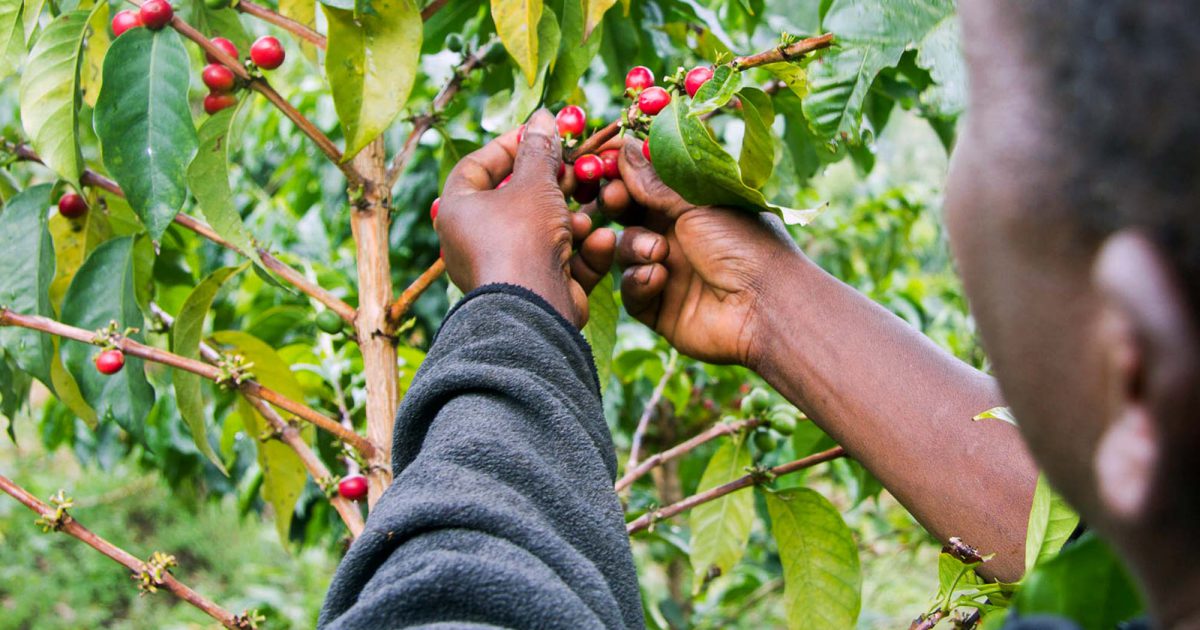Coffee
Nairobi, Sunday December 3, 2017 KNA by Wangari Ndirangu
The national government will reach out to coffee value chain players to intensify efforts in stimulating high growth in the industry, thus exposing small scale farmers to more lucrative opportunities.
This collaboration strategy seeks to increase planting materials as well as reducing high cost of production so that farmers can enjoy their hard earned sweat.
The National Coffee Sub-Sector Implementation Committee chairman Joseph Kieyah said that reduced growth in the industry has been occasioned by high cost of doing business and lack of adequate planting materials.
Kieyah who was appointed last year by President Uhuru Kenyatta to spearhead reforms in the industry noted that efforts were being fast tracked to restore vibrancy and create more growth openings.
“There is general consensus among the national government, county governments, research institutes and development partners that the industry needs to be revived as part of reducing poverty, passive development and create wealth,” he said.
This is the only way, there can be guarantee of ownership to the small scale farmers, unlike in the current situation where other agents are the ones who enjoy their sweat more than the growers,” said Kieyah.
Kieyah made the remarks at Mutira Farmers Coffee Society in Kirinyaga County during a Coffee Productivity Project (CPP) stakeholder forum Saturday.
CPP is a Sh277 million European Union grant project designed in 2013 to ensure decentralization of coffee research activities in order to maximize production of planting materials and enhance access to the farmers.
Under the project 28 coffee societies were contracted to produce seedlings and sell to farmers.
Mutira society chairman James Kinyua Karani confirmed that under the programme farmers under the organization increased production by more than 100 percent from 1.5 million kilogrammes of cherry to over 3 million five years ago.
Further, more than 1,500 farmers have been enlisted in coffee production from 4000 farmers to 5,500 active growers.
“Part of the positive impact of the programme is that we have increased cherry payment to farmers to about Sh100 per kilo and the uptake of seedlings by affiliated farmers and others from the neighbouring societies stand at 40,000 per season,” he added.
The 28 contracted societies sell seedlings at Sh25 for the new variety Batian, Sh30 for Ruiru 11 and Sh20 for grafted varieties. Batian and Ruiru 11 varieties are resistant to coffee berry and leaf rust diseases. “We fully support the new coffee rules being fronted by the national government though there is need for intensive consultations by all value chain players before full implementation,” Karani said.
The CPP project which is ending later this month with a possibility of extension under a new version has been under implementation in 14 coffee growing counties by 28 farmers’ cooperative societies contracted by Coffee Research Institute (CRI) to produce more seedlings.
Under the project over 50,000 small scale farmers have been reached and over 3,500 acres added into areas under coffee.
The societies buy seeds from CRI headquarters and produce seedlings which they later sell to farmers within and outside their localities.
According to Keiyah, the government’s intention is to reduce risks farmers grapple with along the value chain.
“Farmers have been struggling with inadequate planting materials over and above old varieties thus leading to low production. This is part of the reforms we are pursuing to ensure smallholder farmers r and production cost,” he added.
CRI director Dr.Elijah Gichuru confirmed that his organization in order to implement project partnered with 28 farmers coffee societies in 14 counties.
“Since we started the project we have witnessed positive progress in coffee production as well as increase in area under coffee. Over 50,000 small scales coffee farmer benefited through the project in addition about 4000 acres of land increased in coffee production,” Gichuru said.
He added that CRI devolved coffee seedlings production from seeds to the cooperatives to ensure timely access and minimizing cost of production and other eventualities.
For a long time, farmers have been buying the seedlings from CRI headquarters and other five sub research stations spread across the country. But following CRI partnership with societies to further the production of seedlings the environment in the coffee industry has changed,” he said.
The EU delegation to Kenya, project manager David Mwangi Njuru said they support the government’s intentions to introduce new reforms in the coffee industry so that Kenya can reclaim its glorious moments of 1970s and 1980s when coffee was the country’s top foreign exchange earner.
Njuru said the youth were avoiding coffee business due to the old people continually hanging onto it and delay in payments.
“There was need for wooing the youth and women into coffee farming in order to avoid continuity gap once the elderly surrender the business due to advance age”.



